ICAR-IIPR Regional Station, Phanda, Bhopal, Madhya Pradesh
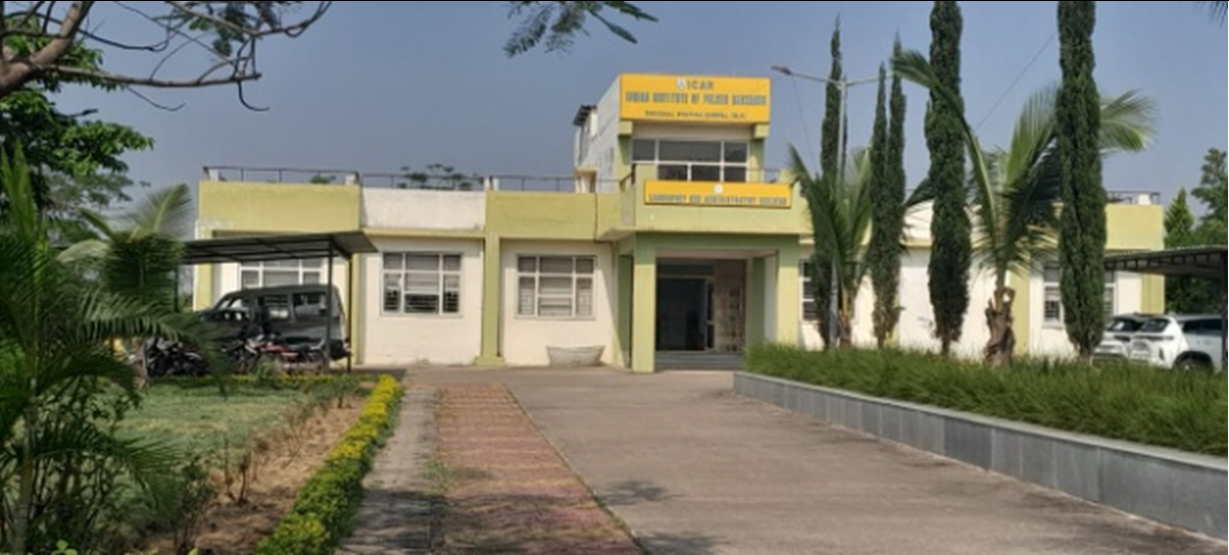
Overview
ICAR- Indian Institute of Pulses Research, Regional Station Bhopal, Madhya Pradesh was established in 2013 with an objective of catering the needs of pulses growing farmers of central India. The regional station is located in Phanda village on Bhopal-Indore highway near toll plaza and is adjacent to M.P. State Agricultural Farm. It is about 25 km from Bhopal railway station and 20 km from Bhopal Airport. The mandate of this station is to conduct strategic pulses research for central India; quality seed production including nucleus, breeder and foundation seed; characterization and evaluation of germplasm; generation of high yielding breeding lines for central India; conducting field demonstrations and transfer of technologies. The station is also engaged in capacity building of officials of state department of Agriculture and training of farmers.
Thrust Area
- To focus research on major pulses of the central zone with emphasis on rain-fed agro-ecosystems.
- Genetic improvement of pulses for the central zone with emphasis on terminal drought and heat tolerance, and Fusarium wilt resistance in crops like chickpea and pigeonpea.
- Germplasm enhancement of important pulses of the central zone with emphasis on germplasm evaluation, characterization, and utilization in the breeding programme through pre-breeding approaches.
- To produce breeder seed of major pulse varieties released for the central zone.
- To encourage farmers’ participation in quality seed production through seed hubs.
- To disseminate need-based technologies suitable for farmers of the central zone through frontline demonstrations and other programs.
Mandate crops
Chickpea, Pigeonpea, Lentil, Urdbean, Mungbean, Field pea and Grass pea.
Human Resource
| S. NO. | Cadre | Sanctioned | Filled | Vacant |
|---|---|---|---|---|
| 1 | Scientific | 07 | 05 | 02 |
| 2 | Technical | 04 | 03 | 01 |
| 3 | LDC | 01 | 00 | 01 |
| 4 | Driver | 01 | 00 | 01 |
| Total | 13 | 08 | 05 |
Scientific Personnel:
| S. NO. | Name | Position | Photo |
|---|---|---|---|
| 1 | Dr. Gitanjali Sahay | Principal Scientist, Genetics & Plant Breeding & Officer In-charge |  |
| 2 | Dr. Dibendu Datta | Principal Scientist, Genetics & Plant Breeding |  |
| 3 | Dr. Archana Singh | Principal Scientist, PGR & Economic Botany | 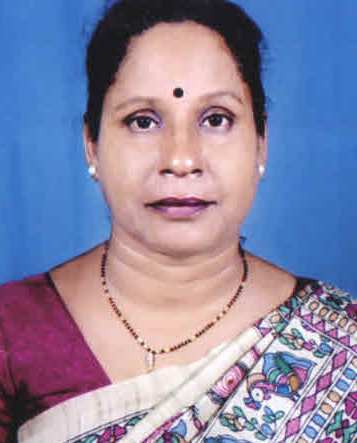 |
| 4 | Dr. Surendra Kumar Ghritlahre | Scientist (SS); Genetics & Plant Breeding |  |
| 5 | Dr. Nidhi Kumari | Scientist (SS); Plant Pathology |  |
Technical Personnel:
| S. NO. | Name | Position |
|---|---|---|
| 1 | Mr. Amit Bhatore | Technical Assistant |
| 2 | Mr. Ritesh Pawar | Technical Assistant |
| 3 | Mr. Priyank Shrivastav | Technician |
Facilities available:
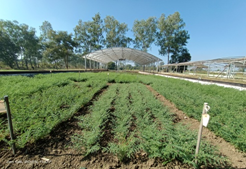
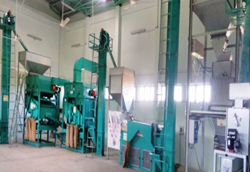
Photogallery:
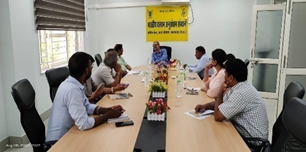
Visit of Director, ICAR-IIPR, Kanpur
|
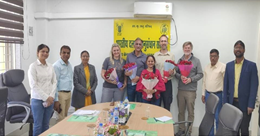
Visit of Global Crop trust team
|
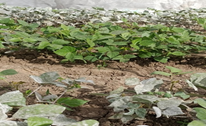
Powdery mildew tolerant mungbean genotype
|
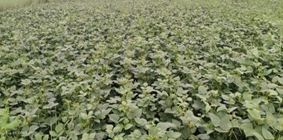
Breeder seed production
|
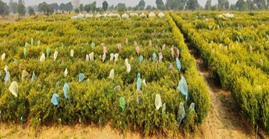
Pigeon pea breeding experiment
|
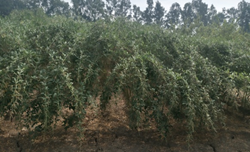
Pigeon pea variety IPA 15-6
|
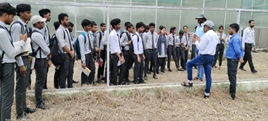
Student’s visit
|
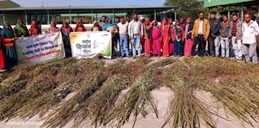
Farmers visit on National Farmers Day
|
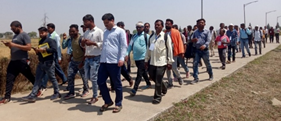
Visit of trainee farmers
|
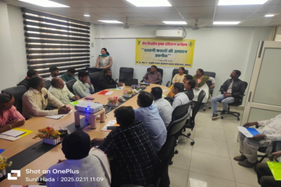
Farmers training
|
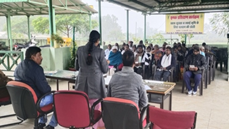
Farmers training
|
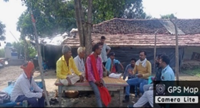
Meeting with FLD farmers
|
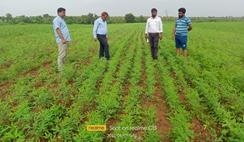
Pigeonpea FLD
|
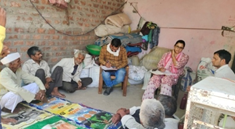
Interaction with farmers of Model Village
|
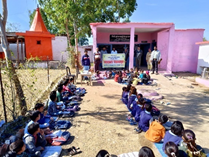
Swachh Bharat awareness in school
|
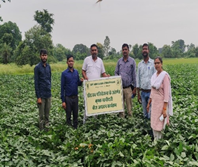
Quality seed production
|
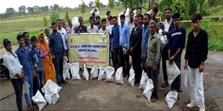
SC SP Plan seed distribution IIPR, RS, Bhopal
|
Research Activities
- Strengthening of germplasm characterization, evaluation & utilization of pulse crops (Chickpea, Pigeonpea, Lentil, Mungbean, Urdbean, Grasspea).
- Improvement of kabuli chickpea for enhanced productivity, wider adaptability and nutritional quality.
- Genetic enhancement of pigeonpea for central zone.
- Improvement of grass pea for low ODAP and high yield.
- Genetic enhancement of summer mungbean for central zone.
- Characterization of wilt / root rot (WRR) complex diseases in chickpea and lentil and their management.
- Conducting national and international trials to identify superior genotypes of chickpea, lentil and grass pea for central zone.
- Identification of trait specific donors of pulses.
A. Institute Funded Projects |
|||
| 1 | Genetic enhancement for high yield and disease resistance in medium duration pigeonpea |
PI: Dr. D. Datta CoPI: Dr. SK Ghritlahre Dr. Nidhi Kumari, Dr. RK Mishra |
|
| 2 | Genetic and genomic resources management and their utilization in medium duration pigeonpea |
PI: Dr. SK Ghritlahre CoPI: Dr. Dibendu Datta Dr. Nidhi Kumari |
|
| 3 | Breeding of Kabuli Chickpea for better grain quality, productivity and adaptability |
PI: Dr. Gitanjali Sahay CoPI: Dr. Yogesh Kumar, Dr. Nidhi Kumari |
|
| 4 | Grasspea improvement for enhanced yield and quality traits | PI: Dr. Archana Singh | |
| 5 | Development of biotic and abiotic stress resistant superior varieties through integrated conventional and modern approach in pigeonpea for summer–spring cultivation in Central India |
PI: Dr. Surendra Ghritlahre CoPI: Dr. D. Datta, Dr. Nidhi Kumari, Dr. Revannaappa |
|
| 6 | Identification of virulence factors arsenal of Fusarium oxysporum f.sp. lentis during its pathogenesis in lentil |
PI: Dr. M. Akram CoPI: Dr. Ritika Das, Dr. Arvind Kumar Konda |
|
| 7 | Prevalence and characterization of wilt / root rot (WRR) complex diseases in chickpea and lentil and development of sick plots for resistance screening | PI: Dr. Nidhi Kumari | |
B. Externally Funded Projects |
|||
| 1 | Characterization of chickpea germplasm resources to accelerate Genomics-assisted Crop Improvement | PI: Dr. Archana Singh | |
| 2 | Supply Chain of Pulses in Major Pulse Producing States of India with a focus on Eastern States |
PI: Dr. Dibendu Datta CoPI: Dr. Surendra Ghritlahre |
|
| 3 | Exploration and application of soil-inhabiting and endophytic plant growth promoting bacteria including actinomycetes for biological management of soil-borne diseases of lentil | PI Dr. Nidhi, Co-PI Dr. Surendra Ghritlahre | |
C. Projects run through Revolving Fund |
|||
| 1 | Enhancing breeder seed production for increasing indigenous production of pulses in India |
PI: Dr. Dibendu Datta CoPI: Dr. Surendra Ghritlahre |
|
| 2 | Creation of seed hubs for increasing indigenous production of pulses in India |
PI: Dr. Gitanjali Sahay Co-PI Dr. Surendra Ghritlahre CoPI: Dr. Nidhi Kumari |
|
Varieties Developed
| Crop | Variety | Release and notification |
|---|---|---|
| Pigeonpea | IPA 15-06 | CVRC release for Central Zone |
| Lentil | IPL 534 | SVRC release for Madhya Pradesh |
| Lentil | IPL 341 | SVRC release for Madhya Pradesh |
| Lentil | IPL 342 | SVRC release for Madhya Pradesh |
| Urdbean | IPU 10-26 | SVRC release for Madhya Pradesh |
| Urdbean | IPU 11-02 | SVRC release for Madhya Pradesh |
| Urdbean | IPU 13-1 | SVRC release for Madhya Pradesh |
| Urdbean | IPU 17-1 | SVRC release for Madhya Pradesh |
| Urdbean | IPU 19-10 | SVRC release for Madhya Pradesh |
| Urdbean | IPU 17-2 | SVRC release for Madhya Pradesh |
| Urdbean | IPU 13-6 | SVRC release for Madhya Pradesh |
| Chickpea | IPC 2017-292 | SVRC release for Madhya Pradesh |
| Chickpea | IPC 2017-351 | SVRC release for Madhya Pradesh |
Significant achievements
Chickpea germplasm
- Maintained 7512 cultivated and 22 wild accessions of chickpea
- 588 new accessions of were procured from ICRISAT
- ICC 1237 was identified for upright peduncle having double pods (Recommended by IGIC for registration)
- 184 ICRISAT mini-core accessions were characterized
- Genotypes with specific traits (anthocyanin, trifoliate leaves in a kabuli type, compact leaf, open flower, flat pod, long pods, upright double pods, cylindrical pods, small pods and small seeds, long seeds and variegated seeds) were observed
- Seven genotypes (ICC 2, ICC 86, ICC 176, ICC 265, ICC 343, ICC 380 and ICC 2808) identified for heat tolerance under heat stress condition.
- Genotype EC 267221 showed heat tolerance for five years (2020–2025)
- Genotypes ICC 14410, ICC 6462, ICC 14409 and ICC 6471 have shown heat tolerance for four years (2021–2025)
Kabuli chickpea breeding
- Breeding materials generated (4 F2 populations, 85 F3 SPS from 5 crosses, 105 F4 SPS from 6 crosses)
- Forty eight accessions were procured from FLRP, Amlaha
- One hundred fifty five germplasm accessions were characterized, evaluated and economically important yield attributing trait possessing lines were selected for utilization in breeding programme
- 6 station trials were conducted and 2 promising entries DG16-313, FLIP 1189C-S1 and FLIP11-164C-S1 were identified
Pigeonpea
- IPA 15-6 released and notified for CZ
- 18 new F1’s were generated
- SPS selections were made in the breeding materials of medium duration pigeonpea and their filial generations were advanced
- Shuttle breeding lines were evaluated and selected for generation advancement
- Conducted 15 station trials and 4 preliminary yield trials were evaluated in past 4 years and 3 superior entries were nominated for AICRP-IVT trial
- Conducted 3 trials for the evaluation of germplasm collected through germplasm exploration
- Conducted 3 PYT for the identification of promising wild derivatives. One elite line was identified
- A multi-location trial for the screening of waterlogging tolerance was conducted and genotypes with less mortality under waterlogging stress were selected for further evaluation
- The passport data and seed of 16 genotypes of pigeonpea collected from Sehore, Raisen and Narmadapuram districts of Madhya Pradesh were submitted to NBPGR and IC numbers were allocated to 14 accessions
- 14 newly local germplasm were collected from Sehore and Raisen district of Madhya Pradesh were characterised
- Maintained the biotic stress tolerant pre-breeding genotypes of pigeonpea
- Maintained 291 germplasm of cultivated pigeonpea and 4 accessions of Cajanus scarabaeoides
- Identified 2 short height genotypes from the pool of wild derivatives
- Conducted trials for the identification of NIL pair for pod shattering genotype
Grasspea
- New F1s between cultivated grasspea and L. cicera were generated
- Breeding populations were generated (SPS made: F2 (83), F3 (349) and F4 (192))
- 903 germplasm maintained
- 90 accessions were evaluated and trait specific genotypes were validated
- 653 M4 mutant progenies evaluated
- In M5 generation, 679 single plants were selected for plant type, leaf, flower, pod and seed variant
- One station trial (consisting of 12 entries) was conducted
Summer Mungbean (project initiated in 2024 summer season)
- Breeding materials were generated (3 F1’s and 3 F2 populations)
- A multi-location station trial of mungbean was evaluated during summer 2024 and six promising entries, namely IPM1603-3, IPM409-4, IPM1732-1, IPM1718-3, IPM1704-14, IPM312-18 were identified
- Collected 7 local germplasm from Sehore, Jhabua, Harda and Anuppur districts of Madhya Pradesh
- A local germplasm was screened for powdery mildew. It showed tolerance and delayed disease progress curve.
Characterization of wilt / root rot (WRR) complex diseases in chickpea and lentil
Lentil
- Putative Fusarium oxysporum f.sp. lentis isolates from samples collected from Phanda farm have been isolated.
- Pathogenicity has been proved on lentil var. IPL-316 through sick soil method.
- Now the isolate is subjected to molecular identification.
Chickpea
- Putative F. oxysporum f.sp. ciceris isolates have been successfully isolated from samples collected from IPPR-RRS, Phanda and sick plot, RAK College, Sehore.
- Their pathogenicity has also been proved on chickpea var. JG62 through sick soil method.
- All the pathogenic isolates are subjected to molecular identification.
Soil-inhabiting and endophytic plant growth promoting microorganisms for biological management of soil borne diseases of lentil
- The rhizospheric soil and root samples were collected from 28 locations.
- 150 rhizospheric and 40 endophytic bacterial isolates were isolated.
- Bacterial isolates with high mycelial inhibition of Sclerotium rolfsii and Fusarium oxysporum as well as more plant growth promoting abilities are identified.
- Isolates including YM S20 10-6A, SMAA S2-A, S.I (G7), S.I (A1), YM S23 10-6A, ISP S18 10-8 have been identified to have high antagonistic potential against collar rot and wilt pathogens as well as ability to solubilize Phosphorus, Potassium, Zinc, produce IAA, ammonia and siderophores.
Development of model pulses village
A SC dominated village was adopted in 2023 to develop as a model pulses village and SC Farmers were given priority
Activities undertaken
- Transfer of technologies
- Field visits organized
- Training imparted
Interventions
- Provided quality seed of Lentil (IPL 534), Fieldpea (IPFD 12-2)
- Mungbean (Sikha and Virat ) seed distributed for summer crop
- FLDs of pigeonpea were conducted
- 25 Farmers from the adopted village participated in 3-day training programme
- Regular visits were made to address the crop management issues of the farmers
Achievements
- Few farmers have started incorporating pulses in the cropping system
- Crop disease and insect management was better
- Improved varieties and timely crop management has increased the productivity
Multi-location Trials
- 83 local germplasms of grasspea were allocated IC numbers
- Local germplasm accessions were evaluated for grain yield. 13 entries showed higher grain yield than checks. IPLA 23-5 was nominated for AICRP-IVT
- 3 entries from INTL CWR elites trial 23-24 were tested in multi-location
- One kabuli chickpea and 3 desi chickpea trials were conducted
- Two heat tolerance trials of desi chickpea were conducted and IPCU 729, IPC2019-5 and ICC 15925 were identified as heat tolerant
- Two yield trial and one heat tolerance trials were conducted and promising lines were identified for further testing
Seed production during 2023-24
- 328.07 q breeder seed (IPU 13-1, IPU 11-2 , IPU 10-26 IPA 15-06 IPFD 11-5, IPFD 12-2, IPFD 2014-2 IPL 316, IPL 534 IPC 2006-77, IPCMB 19-3) was produced
- 658.04 q quality seed (Shikha, Virat IPU 11-2 IPA 15-06 IPC 2006-77, Samriddhi IPL 534 IPFD 12-2 & IPFD 10-12) was procured under Seed-hub project
Extension and HRD activities
SC Sub Plan
- 897 farmers were benefited with the quality seed distribution of new varieties of Urdbean, Pigeonpea, Lentil, Chickpea, Fieldpea.
- Knap sack sprayers were distributed to 100 farmers.
- Micronutrient were distributed to 200 farmers.
- Seed Bin distributed to 100 farmers.
- 24 farmers from Awalikheda/Amamay visited IIPR, RS, Bhopal.
- Scientists of IIPR, RS, Bhopal visited 10 villages and extended crop management technology during kharif and rabi 2024–25.
Farmers Visit
- Pulses production technology and quality seed information was extended to 567 farmers during last one year.
- 30 trainees and 01 faculty member of Agri-Clinic and Agri-Business Centre Scheme (ACABC) from Bhopal.
- 58 personnel under ATMA and DAESI programme visited our center.
Students Visit
- 50 BSc (Agriculture) students from College of Agriculture, IES University, Bhopal visited our institute.
- 37 HS School children interacted with scientists.
Farmer-Scientist Interactions
- Six on-farm interactions between farmers and scientists were organized.
- 91 farmers visited our station and interacted with the scientists for information on pulses technology.
Training organized
- Twenty seven farmers from RDO, Cuttack Odisha participated in the training.
- Fifty SC farmers from Awalikheda and Hinouti villages of Sehore district participated in the training titled “Cultivation of pulses for food security and sustainable agriculture” held at IIPR regional station Phanda, Bhopal.
- 25 farmers of Bhopal participated in training.
FLDs conducted
- Seventy five FLDs were conducted for demonstrating pulses technology.

